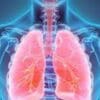The Silent Connection: Can Kidney Disease Lead to Sleep Apnea?
Understanding the Link Between Kidney Disease and Sleep Apnea
Kidney disease and sleep apnea might seem like unrelated conditions at first glance, but recent studies suggest a compelling connection between the two. The kidneys play a crucial role in filtering waste and maintaining fluid and electrolyte balance in the body. When kidney function declines, it can lead to a host of complications, including sleep disturbances.
Why Kidney Disease Affects Sleep
1. Fluid Retention: Kidney disease often results in fluid retention. This excess fluid can accumulate in the lungs and airways, particularly when lying down, contributing to obstructive sleep apnea (OSA).
2. Electrolyte Imbalance: Kidneys regulate the levels of electrolytes like potassium and sodium. Imbalance in these electrolytes can affect muscle function, including the muscles involved in breathing, potentially leading to sleep apnea.
3. Anemia: Chronic kidney disease (CKD) often causes anemia, which can lead to fatigue and poor sleep quality. Anemia reduces oxygen-carrying capacity in the blood, exacerbating sleep apnea conditions.
4. Uremic Toxins: Accumulation of toxins due to poor kidney filtration can affect brain function and sleep regulation, potentially increasing the risk of sleep apnea.
Signs and Symptoms to Watch For
– Loud snoring
– Episodes of breathing cessation during sleep
– Sudden awakenings accompanied by gasping or choking
– Morning headaches
– Daytime fatigue and sleepiness
– Difficulty concentrating
The Impact of Sleep Apnea on Kidney Disease
Sleep apnea, particularly untreated OSA, can exacerbate kidney disease. The repeated episodes of low oxygen levels during sleep can increase blood pressure and strain the cardiovascular system, which can further damage the kidneys.
Managing Sleep Apnea in Kidney Disease Patients
1. Lifestyle Modifications: Weight management, quitting smoking, and reducing alcohol intake can significantly improve symptoms.
2. Continuous Positive Airway Pressure (CPAP): This is a common treatment for sleep apnea that helps keep the airways open during sleep.
3. Medications: Some patients may benefit from medications that address underlying causes, such as diuretics to reduce fluid retention.
4. Regular Monitoring: Frequent check-ups with healthcare providers ensure both conditions are managed effectively.
Transform Your Health Journey with Fitpaa
At Fitpaa, we understand the intricate connections between different health conditions and the importance of personalized care. That’s why we’ve developed an innovative approach to health and wellness, utilizing cutting-edge technology and expert guidance to help you achieve your fitness goals.
Why Choose Fitpaa?
– Personalized Health Plans: Our Fitpaa Capsule is tailored to your unique metabolism and health needs, ensuring you get a plan that’s right for you.
– Expert Team: Access to nutritionists, fitness coaches, and doctors who work together to guide you on your health journey.
– Innovative Technology: The Fitpaa app provides real-time guidance and tracking, making it easier to stay committed to your wellness plan.
– Community Support: Join a community of like-minded individuals who are on the same journey towards better health.
Experience the Fitpaa Difference
With Fitpaa, you’re not just getting a health plan; you’re gaining a partner in your journey to better health. Our holistic approach ensures all aspects of your well-being are covered, from nutrition and exercise to mental health and lifestyle management. Whether you’re managing kidney disease, sleep apnea, or simply looking to improve your overall health, Fitpaa is here to help.
Download the Fitpaa app today and take the first step towards a healthier, happier you. Your well-being is our mission, and we promise to stand by you every step of the way.











